Related Research Articles
Alvaro Pascual-Leone is a Spanish-American Professor of Neurology at Harvard Medical School, with which he has been affiliated since 1997. He is currently a Senior Scientist at the Hinda and Arthur Marcus Institute for Aging Research at Hebrew SeniorLife. He was previously the Director of the Berenson-Allen Center for Noninvasive Brain Stimulation and Program Director of the Harvard-Thorndike Clinical Research Center of the Beth Israel Deaconess Medical Center in Boston.
Dennis W. Choi, M.D., Ph.D., was on the faculty of Stanford University in the 1980s, and served as the Jones Professor and Head of Neurology at Washington University in St. Louis during the 1990s, leaving in January 2001 to work in industry (Merck). While a faculty member at Washington University School of Medicine, Choi was a key contributor to research on glutamate-mediated toxicity ("excitotoxicity") as a mechanism of neural injury in stroke and traumatic brain injury.
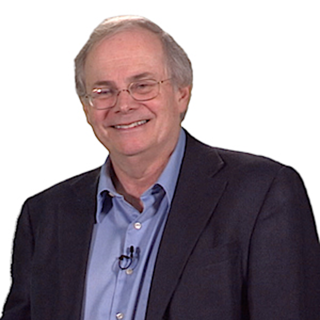
Gregory A. Petsko is an American biochemist and member of the National Academy of Sciences, the National Academy of Medicine, the American Academy of Arts and Sciences, and the American Philosophical Society. He is currently Professor of Neurology at the Ann Romney Center for Neurologic Diseases at Harvard Medical School and Brigham and Women's Hospital. He formerly had an endowed professorship in Neurology and Neuroscience at Weill Cornell Medical College and is still an adjunct professor of Biomedical Engineering at Cornell University, and is also the Gyula and Katica Tauber Professor, Emeritus, in biochemistry and chemistry at Brandeis University.
Richard Lewis Huganir is a Bloomberg Distinguished Professor in the Departments of Neuroscience and Psychological and Brain Sciences, Director of the Solomon H. Snyder Department of Neuroscience, and co-director of the Johns Hopkins Medicine Brain Science Institute at the Johns Hopkins University School of Medicine. He has joint appointments in the Department of Biological Chemistry and the Department of Pharmacology and Molecular Sciences in the Johns Hopkins School of Medicine.
The American Neuropsychiatric Association (ANPA) is a non-profit organization of professionals in neuropsychiatry, behavioral neurology and the clinical neurosciences, with over 700 members from around the world. Established in 1988, its mission is to improve the lives of people with disorders at the interface of psychiatry and neurology, with the vision of transforming recognition, understanding and treatment of neuropsychiatric disorders. It founded in 1988 by two academic physicians doubly certified in neurology and psychiatry, Barry S. Fogel and Randolph Schiffer.

David A. Hafler is an American neurologist. He is the Edgerly Professor and chairman of the department of Neurology at the Yale School of Medicine. He is known for his work in immunity, genetics, and multiple sclerosis. In 2018 he was elected to the National Academy of Medicine.

Patricia Janak is a Bloomberg Distinguished Professor at Johns Hopkins University who studies the biological basis of behavior through associative learning. Janak applies this research to pathological behaviors, such as addiction and posttraumatic stress disorder, to improve understanding of how stimuli affect relapse and responses.
György Buzsáki is the Biggs Professor of Neuroscience at New York University School of Medicine.

Rajiv Ratan is an Indian American academic, professor, administrator and scientist based in New York. He is the Burke Professor of Neurology and Neuroscience at Weill Cornell Medicine. Since 2003, he has served as the executive director of Burke Neurological Institute and as a member of the Council of Affiliated Deans of Weill Cornell Medicine.
Sridevi Sarma is an American biomedical and electrical engineer known for her work in applying control theory to improve therapies for neurological disorders such as Parkinson's disease and epilepsy. She is vice dean for graduate education of the Johns Hopkins University Whiting School of Engineering, associate director of the Johns Hopkins Institute for Computational Medicine, and an associate professor in the Johns Hopkins Department of Biomedical Engineering.
Ted M. Dawson is an American neurologist and neuroscientist. He is the Leonard and Madlyn Abramson Professor in Neurodegenerative Diseases and Director of the Institute for Cell Engineering at Johns Hopkins University School of Medicine. He has joint appointments in the Department of Neurology, Neuroscience and Department of Pharmacology and Molecular Sciences.

Albert Mark Galaburda is a cognitive and behavioral neurologist with a special focus on the biologic bases of developmental cognitive disorders. He is the Emily Fisher Landau Professor of Neurology and Neuroscience at Harvard Medical School, the Director of the Office for Diversity, Inclusion, and Career Advancement at Beth Israel Deaconess Medical Center, Boston, and co-director of the Harvard University Interfaculty Initiative on Mind Brain and Behavior, together with psychologist Alfonso Caramazza. He is best known for his development of the Geschwind–Galaburda hypothesis, which helps explain differences in cognitive abilities on the basis of sex hormones and immunological characteristics and their relationship to lateralization of brain function, as well as for his pioneering studies on the biological foundations of developmental dyslexia. Other work includes the anatomical organization of the auditory cortex in the brains of monkeys and humans and the neuroanatomical and neurodevelopmental bases of brain laterality and asymmetry. He attended the Six-Year Liberal Arts-Medicine Program at Boston University School of Medicine, graduating with an AB-MD degree in 1971, and completed a residency in Internal Medicine and a residency in Neurology at Boston City Hospital, now Boston Medical Center. He was trained in Medicine under Norman Levinsky and in Neurology under Norman Geschwind. He has published numerous scientific articles and books in the field of cognitive neurology, with a focus on learning disabilities and attention disorders, especially in adults.
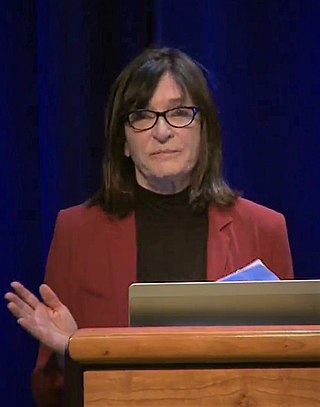
Michela Gallagher is an American cognitive psychologist and neuroscientist. She is the Krieger-Eisenhower Professor of Psychology and Neuroscience at Johns Hopkins University. Her scientific work has changed the model of neurocognitive aging, and developed new indices for its study. Previously, work had focused on neurodegeneration as a primary cause of memory loss.
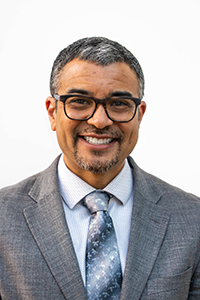
Roy Hamilton is professor in the departments of Neurology, Psychiatry, and Physical Medicine and Rehabilitation at University of Pennsylvania (Penn). He is the Director of Penn's Laboratory for Cognition and Neural Stimulation (LCNS), and launched the Brain Stimulation, Translation, Innovation, and Modulation Center (brainSTIM) at the University of Pennsylvania in 2020.
Stephen E. Nadeau is an American behavioral neurologist, researcher and academician. He is a Professor of Neurology at the University of Florida College of Medicine. He is also the Associate Chief of Staff for Research at the Malcolm Randall Department of Veterans Affairs Medical Center.
John Henry Richard Maunsell is a British-American neuroscientist who is the Albert D. Lasker Professor of Neurobiology at the University of Chicago. He is a fellow of the American Academy of Arts & Sciences and the American Association for the Advancement of Science. Formerly the editor-in-chief of The Journal of Neuroscience, as of 2021 he is a co-editor of the Annual Review of Vision Science.

Alex Leo Kolodkin is an American neuroscientist. He is the Charles J. Homcy and Simeon G. Margolis Professor in the Department of Neuroscience at the Johns Hopkins University School of Medicine.
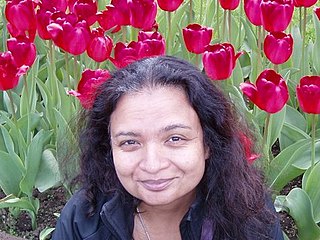
Soma Sengupta, MD, PhD, MBA, FRCP, FANA, FAAN is a British-American physician-scientist. She is a specialty board certified neuro-oncologist board certified Neurologist, fellowship-trained in Integrative Medicine, and recipient of an MBA. Her clinical interests span treatment of brain tumor patients, integrative approaches in neurology and oncology, as well as healthcare policy. She is a full-time faculty member of the Department of Neurology at the University of North Carolina at Chapel Hill, where she is a Full Professor, Vice Chair, and Chief of the Division of Neuro-Oncology. She is also a Bye Fellow at Lucy Cavendish College, University of Cambridge, U.K.
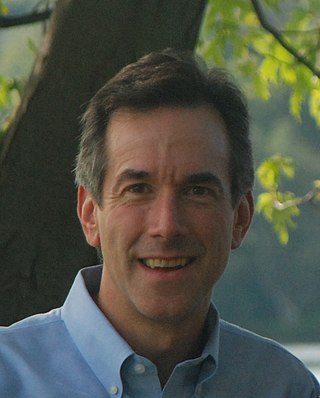
Andrew E. Budson is an American neurologist, academic and researcher. He is a Professor of Neurology at Boston University School of Medicine, Lecturer in Neurology at Harvard Medical School, Chief of Cognitive and Behavioral Neurology and Associate Chief of Staff for Education at the Veterans Affairs (VA) Boston Healthcare System, where he also serves as a Director of the Center for Translational Cognitive Neuroscience. He is Associate Director and Outreach, Recruitment, and Engagement Core Leader at the Boston University Alzheimer’s Disease Research Center.
Guo-li Ming is a Chinese-American neuroscientist. She is the Perelman Professor of Neuroscience and a member of the Institute of Regenerative Medicine at the University of Pennsylvania. In 2019, Ming was elected to the National Academy of Medicine for "pioneering the use of patient-derived human stem cells to model genetic and environmental risk for brain disorders, which has transformed our understanding of underlying mechanisms and potential therapeutic strategies."
References
- ↑ "VIAF". Virtual International Authority File . Retrieved 2023-02-05.
- 1 2 3 4 5 6 7 8 9 "Barry Gordon, M.D., Ph.D., Professor of Neurology". Johns Hopkins Medicine. Retrieved 2023-02-05.
- ↑ Gordon, Barry (1981). Lexical access and lexical decision: mechanisms of frequency sensitivity (Ph.D. thesis). Johns Hopkins University. OCLC 79619518.
- ↑ Kirchner, Mary Beth (November 26, 2010). "A Scientist's Saga: Give Son The Gift Of Speech". NPR. Retrieved 2023-02-05.